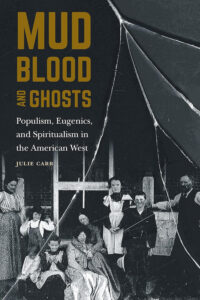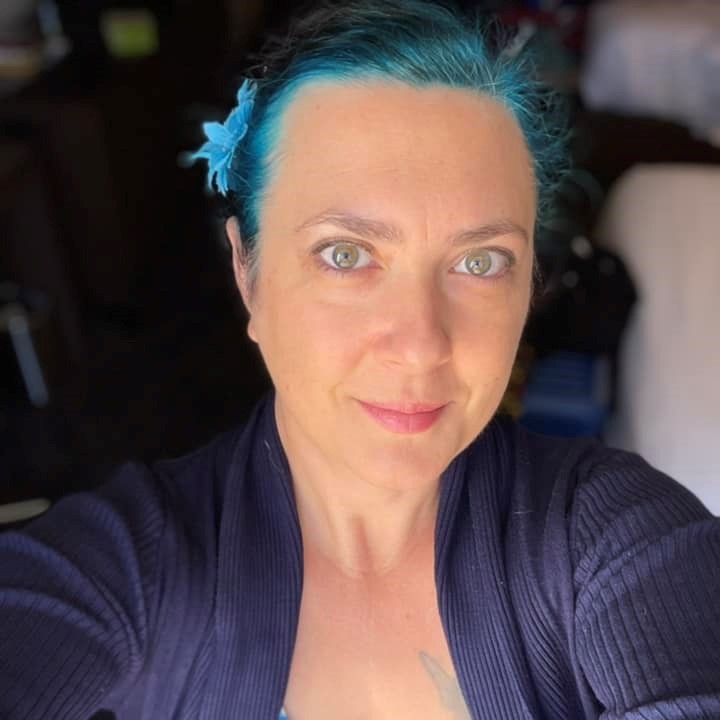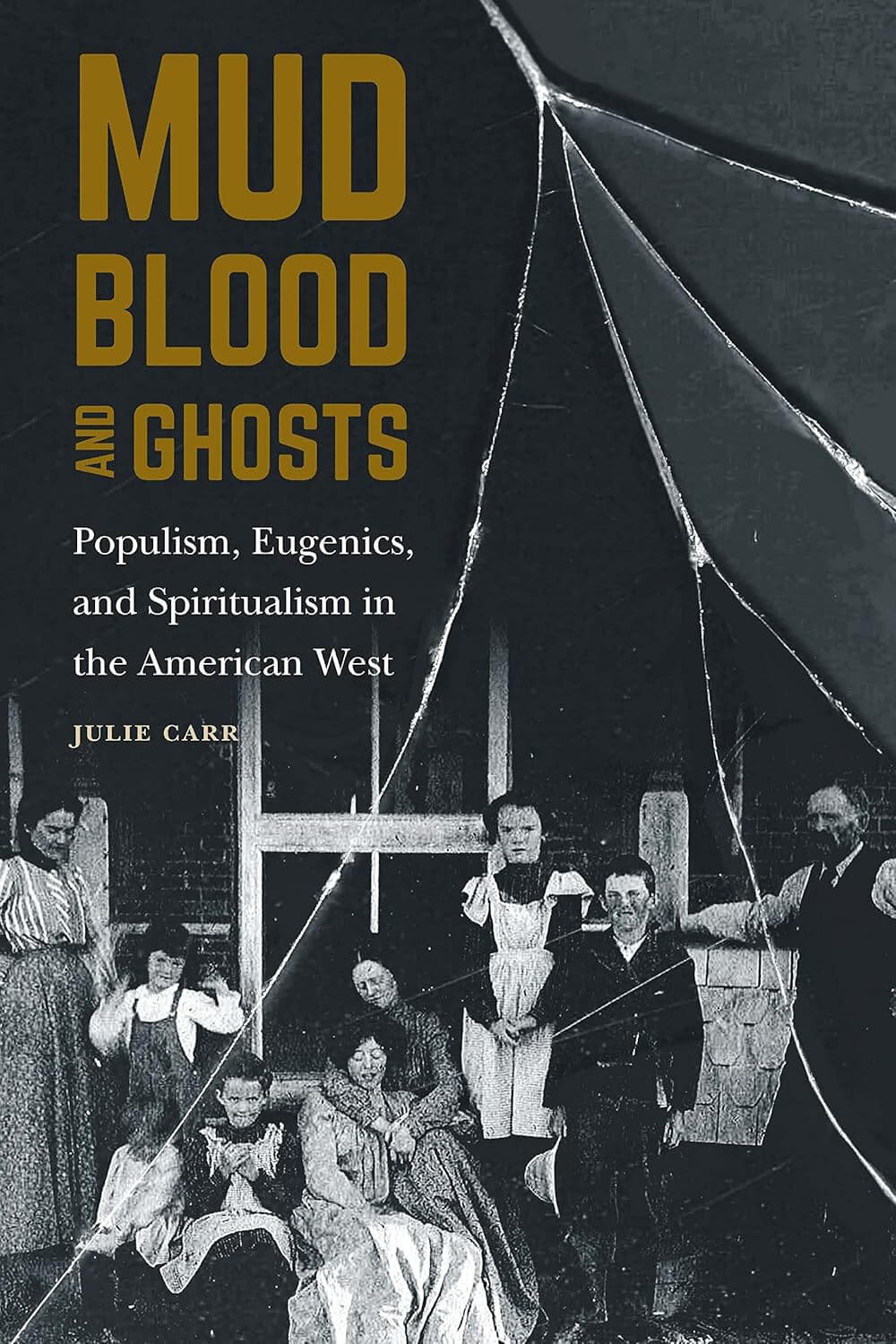Ghosts of ancestors not quite past
A poet and professor interrogates her great-grandfather’s role in forming the mindset of the American West
A poet and professor interrogates her great-grandfather’s role in forming the mindset of the American West
The political atmosphere in the United States has been deeply charged and antagonistic for years, leaving us in what many consider unprecedented times. A question that frequently comes up is, “How did we get here?” University of Colorado English professor Julie Carr, in her nonfiction book Mud, Blood and Ghosts: Populism, Eugenics, and Spiritualism in the American West, has gone one step further, tracing her own family line via her great-grandfather, Omer Kem, from his hardscrabble homesteading life to his time as a politician pushing eugenics and racial separation.

Julie Carr
This book is part family memoir, part well-researched historical document, and is written in a fluid, easily readable style. Carr is also a poet, and that shows through at times in the rhythms and descriptions in her prose. She used old letters, newspapers, Kem’s own autobiography and other documents to trace his progression across the U.S. What really drives home the themes of her book is her deep honesty and willingness to look at both her ancestral line and her personal flaws, as well as her struggle to come to terms with what she learned. She manages to do this without putting Kem on a pedestal, despite noting his accomplishments, or damning him for his flaws, even though her personal beliefs clash with his. What she wants is to understand, not to judge, and passes that desire on to the reader.
Kem was born in Indiana in 1855 to a family of abolitionists. His own great-grandfather, a Quaker, had been part of the Underground Railroad in North Carolina, helping those escaping slavery to safety in the north. Even so, the family had benefited both from owning and selling slaves and by taking and developing land opened up to them by the Indian Removal Act of 1830, demonstrating that the settling of the U.S., no matter how progressive the people doing it, was done at the cost of minorities.

Order from Bookshop.org or your favorite independent bookseller
Though previously well off, the family Kem was born into was poor and his young life was spent in various rented places as his father gained and lost jobs and property around the northern U.S. Kem went on to create a family of his own, starting out as a poor farmer in swampland in Indiana, then chasing various opportunities that took him from Nebraska to Colorado and, ultimately, to Oregon where he ended up owning a utilities company. He was able to take advantage of things like the Homestead Act of 1862, which handed over large acreages to white settlers willing to work and develop the land. He helped found the People’s Party, a Populist party made up of farmers in southern and western states who were tired of living in fear of not being able to feed their families. He eagerly fought to irrigate land in southern Colorado by carving the earth from the Colorado River to properties miles away, and fought against the abuses of the rich, at least at the beginning.
At some point in these desperate years, Kem changed, though how much he changed is up to interpretation. Carr traces his many losses and his scattered wins, attempting to find out why a man who vociferously claimed to support indigenous rights and sovereignty eventually heavily endorsed H.R. 67, a bill tearing land away from Ute tribes in Colorado and forcibly removing them to arid, unusable land far from their tribal home. She looks at Kem, though not in a bubble, instead looking at what was happening nationally and in the states in which he lived.
These events and social influences were a shaping force on Kem, in addition to his own personal struggles and victories. They’re also a fascinating peek into the shaping of the country, with details I was previously unaware of, such as the literal draining of swampland to create more land for agriculture, an event also likely to flush out Native Americans, escaped slaves, and poor whites hiding out in those inhospitable areas.
Kem’s troubling views on race, eugenics and the future of the U.S. created a schism in at least one friendship and helped change the face of Populism. He claimed to have an indigenous spirit guide responsible for the good things in his life (and oddly absent during the bad times). But by the end of his multiple terms in government positions, he was preaching the superiority of the white race and supporting the rich in their climb to increased power instead of those fighting the same fights he’d faced in his formative earlier years.
Mud, Blood, and Ghosts is an educated and educational view of the history of white, male supremacy, westward expansion, and their ripples in the United States. Race and eugenics are not the only things addressed; problematic issues of today—the stripping of women’s rights, colonialism, anti-immigration—are also reflected in its pages, showing not only how history repeats itself, but how it builds on itself. The book looks at Populism then and now in an attempt to make sense of what we’re facing in modern times, how it has evolved and how it hasn’t.
There’s a bravery in taking an honest look at one’s own family to find answers, but even more so in exposing the guts of that lineage and self-reflecting at the same time. I found myself at once fascinated and deflated by what I learned, but also hopeful and determined to change things for the better.
Everyone has ancestral ghosts and skeletons in the closet, but few of us have the stomach for analyzing and exposing them, even for the greater good. Carr does so with an openness, candidness and fairness that’s refreshing and illuminating. This is a deeply human and insightful book that reads well. Where it could easily be dry and dull, it instead remains a gripping familial saga with modern implications.
A fan of all things fantastical and frightening, Shannon Lawrence writes primarily horror and fantasy. Her short stories can be found in over 60 anthologies and magazines in addition to her horror short story collections. Her nonfiction title, The Business of Short Stories, and debut urban fantasy novel, Myth Stalker: Wendigo Nights, are available now. You can also find her as a co-host of the podcast Mysteries, Monsters, & Mayhem. When she's not writing, she's hiking through the wilds of Colorado and photographing her magnificent surroundings, where, coincidentally, there's always a place to hide a body or birth a monster. Find her at www.thewarriormuse.com.
Click here for more from Shannon Lawrence.

